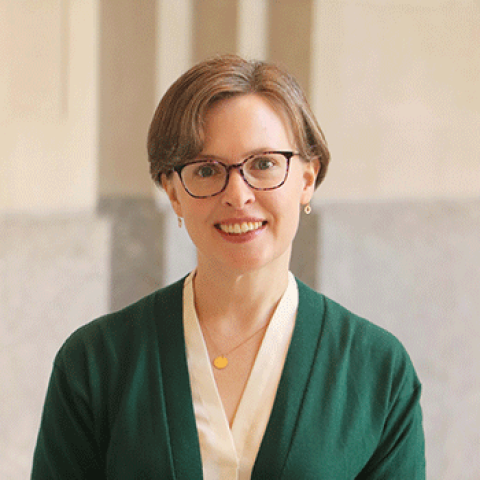Professional Affiliation
Associate Professor, University of Maryland College Park
Expert Bio
Melinda Baldwin is the AIP Endowed Professor (Associate) in History of Natural Sciences at the University of Maryland College Park. She is the author of "Making 'Nature': The History of a Scientific Journal" (U. Chicago Press, 2015) and has been interviewed about her work on scientific publishing and peer review for The Atlantic, Austrian National Radio’s ORF-Radiothek, Germany’s Deutschlandradio, BBC Radio’s The Naked Scientists, and Science Friday’s Undiscovered. She holds a BS from Davidson College, an MPhil from the University of Cambridge, and a PhD from Princeton University.
Expertise
- Cold War
- History
- Science and Technology
- Society and Culture
Wilson Center Project
"In Referees We Trust? Peer review and public policy in the US, 1945-1990."
Project Summary
This project investigates the development of peer review in the sciences. Many modern observers consider peer review the essential mechanism that protects the trustworthiness of science. But for much of refereeing’s early history, it was seen as an optional bureaucratic process. How did it become a prerequisite for scientific credibility in the eyes of both scientists and laymen? Debates over how grant proposals were reviewed at US government agencies during the Cold War seem to have been one key to the establishment of a link between peer review and scientific legitimacy. This project will explore how and why US federal agencies such as the National Science Foundation, the National Institutes of Health, the Atomic Energy Commission, and the Office of Naval Research adopted refereeing practices for scientific grants or contracts, and will analyze how these agencies’ refereeing practices changed and developed over time.
Major Publications
- Melinda Baldwin, “Scientific autonomy, public accountability, and the rise of ‘peer review’ in the Cold War United States,” Isis 109 no. 3 (2018): 538–558.
- Melinda Baldwin, “Credibility, peer review, and Nature, 1939-1990,” Notes and Records: The Royal Society Journal of the History of Science 69 no. 3 (2015): 337–352.
- “To reform peer review, we need to understand its past,” Nature Reviews Physics 3 (2021): 600–601.

